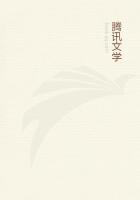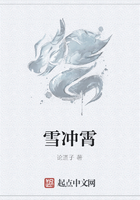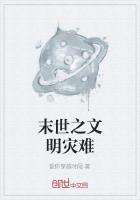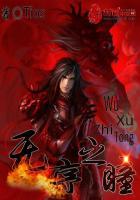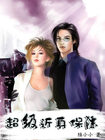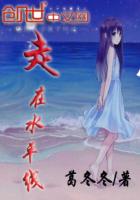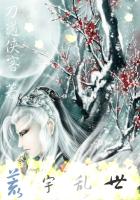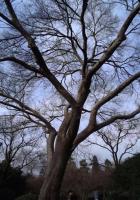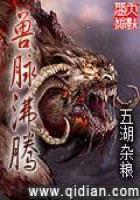Thine--with that grey goat's fleece on chin, sir? Needs Must she be fair: thou, wrapt in age's weeds, Whose blood, if time have touched it not and stilled, The sun's own fire must once have kindled,--thou Sing praise of soft-lipped women? doth not shame Sting thee, to sound this minstrel's note, and gild A girl's proud face with praises, though her brow Were bright as dawn's? And had her grace no name For men to worship by? Her name?
DEBON.
Estrild.
CAMBER.
My brother is a prince of paramours -
Eyes coloured like the springtide sea, and hair Bright as with fire of sundawn--face as fair As mine is swart and worn with haggard hours, Though less in years than his--such hap was ours When chance drew forth for us the lots that were Hid close in time's clenched hand: and now I swear, Though his be goodlier than the stars or flowers, I would not change this head of mine, or crown Scarce worth a smile of his--thy lord Locrine's -For that fair head and crown imperial; nay, Not were I cast by force of fortune down Lower than the lowest lean serf that prowls and pines And loathes for fear all hours of night and day.
DEBON.
What says my lord? how means he?
CAMBER.
Vex not thou Thine old hoar head with care to learn of me This.Great is time, and what he wills to be Is here or ever proof may bring it: now, Now is the future present.If thy vow Constrain thee not, yet would I know of thee One thing: this lustrous love-bird, where is she?
What nest is hers on what green flowering bough Deep in what wild sweet woodland?
DEBON.
Good my lord, Have I not sinned already--flawed my faith, To lend such ear even to such royal suit?
CAMBER.
Yea, by my kingdom hast thou--by my sword, Yea.Now speak on.
DEBON.
Yet hope--or honour--saith I did not ill to trust the blood of Brute Within thee.Not prince Hector's sovereign soul, The light of all thy lineage, more abhorred Treason than all his days did Brute my lord.
My trust shall rest not in thee less than whole.
CAMBER.
Speak, then: too long thou falterest nigh the goal.
DEBON.
There is a bower built fast beside a ford In Essex, held in sure and secret ward Of woods and walls and waters, still and sole As love could choose for harbourage: there the king Keeps close from all men now these seven years since The light wherein he lives: and there hath she Borne him a maiden child more sweet than spring.
CAMBER.
A child her daughter? there now hidden?
DEBON.
Prince, What ails thee?
CAMBER.
Nought.This river's name?
DEBON.
The Ley.
CAMBER.
Nigh Leytonstone in Essex--called of old By men thine elders Durolitum? There Are hind and fawn couched close in one green lair?
Speak: hast thou not my faith in pawn, to hold Fast as my brother's heart this love, untold And undivined of all men? must I swear Twice--I, to thee?
DEBON.
But if thou set no snare, Why shine thine eyes so sharp? I am overbold:
Sir, pardon me.
CAMBER.
My sword shall split thine heart With pardon if thou palter with me.
DEBON.
Sir, There is the place: but though thy brow be grim As hell--I knew thee not the man thou art -I will not bring thee to it.
CAMBER.
For love of her?
Nay--better shouldst thou know my love of him.
[Exeunt.
ACT II.
SCENE I.--The banks of the Ley.
Enter ESTRILD and SABRINA.
SABRINA.
But will my father come not? not today, Mother?
ESTRILD.
God help thee! child, I cannot say.
Why this of all days yet in summer's sight?
SABRINA.
My birthday!
ESTRILD.
That should bring him--if it may.
SABRINA.
May should be must: he must not be away.
His faith was pledged to me as king and knight.
ESTRILD.
Small fear he should not keep it--if he might.
SABRINA.
Might! and a king's might his? do kings bear sway For nought, that aught should keep him hence till night?
Why didst thou bid God help me when I sought To know but of his coming?
ESTRILD.
Even for nought But laughter even to think how strait a bound Shuts in the measure of thy sight and thought Who seest not why thy sire hath heed of aught Save thee and me--nor wherefore men stand crowned And girt about with empire.
SABRINA.
Have they found Such joy therein as meaner things have wrought?
Sing me the song that ripples round and round.
ESTRILD (sings):-
Had I wist, quoth spring to the swallow, That earth could forget me, kissed By summer, and lured to follow Down ways that I know not, I, My heart should have waxed not high:
Mid March would have seen me die, Had I wist.
Had I wist, O spring, said the swallow, That hope was a sunlit mist And the faint light heart of it hollow, Thy woods had not heard me sing, Thy winds had not known my wing;It had faltered ere thine did, spring, Had I wist.
SABRINA.
That song is hardly even as wise as I -
Nay, very foolishness it is.To die In March before its life were well on wing, Before its time and kindly season--why Should spring be sad--before the swallows fly -Enough to dream of such a wintry thing?
Such foolish words were more unmeet for spring Than snow for summer when his heart is high;And why should words be foolish when they sing?
The song-birds are not.
ESTRILD.
Dost thou understand, Child, what the birds are singing?
SABRINA.
All the land Knows that: the water tells it to the rushes Aloud, and lower and softlier to the sand:
The flower-fays, lip to lip and hand in hand, Laugh and repeat it all till darkness hushes Their singing with a word that falls and crushes All song to silence down the river-strand And where the hawthorns hearken for the thrushes.
And all the secret sense is sweet and wise That sings through all their singing, and replies When we would know if heaven be gay or grey And would not open all too soon our eyes To look perchance on no such happy skies -As sleep brings close and waking blows away.
ESTRILD.
What gives thy fancy faith enough to say This?
SABRINA.
Why, meseems the sun would hardly rise Else, nor the world be half so glad of day.
ESTRILD.
Why didst thou crave of me that song, Sabrina?
SABRINA.
Because, methought, though one were king or queen And had the world to play with, if one missed What most were good to have, such joy, I ween, Were woful as a song with sobs between And well might wail for ever, 'Had I wist!'


